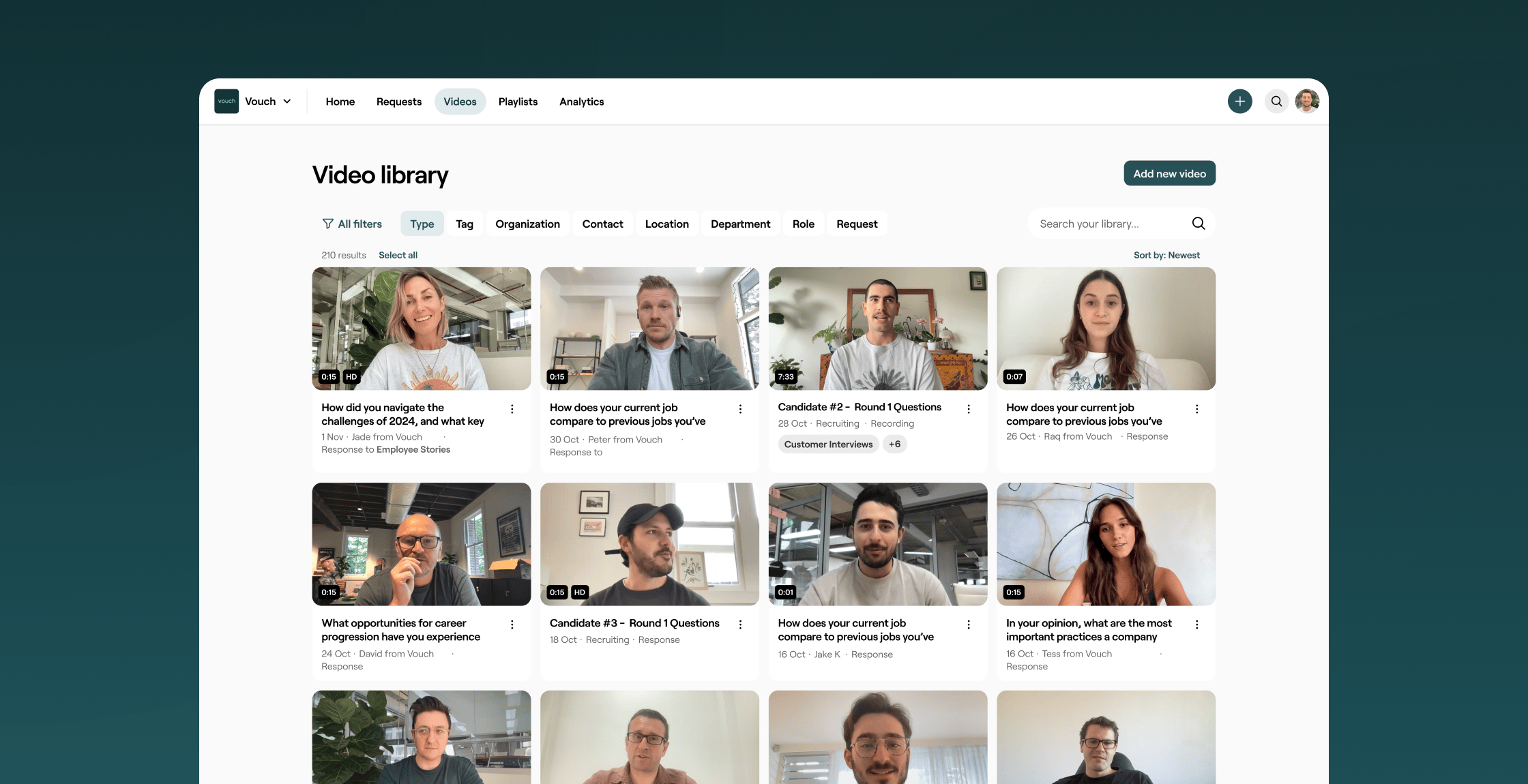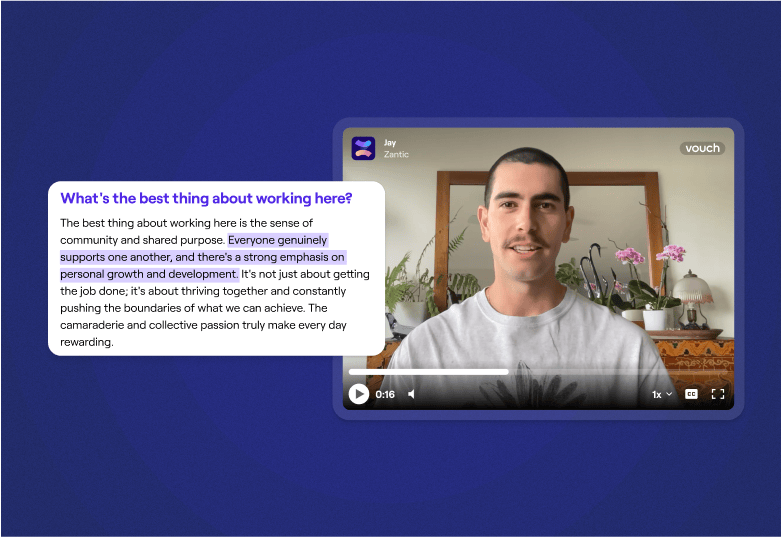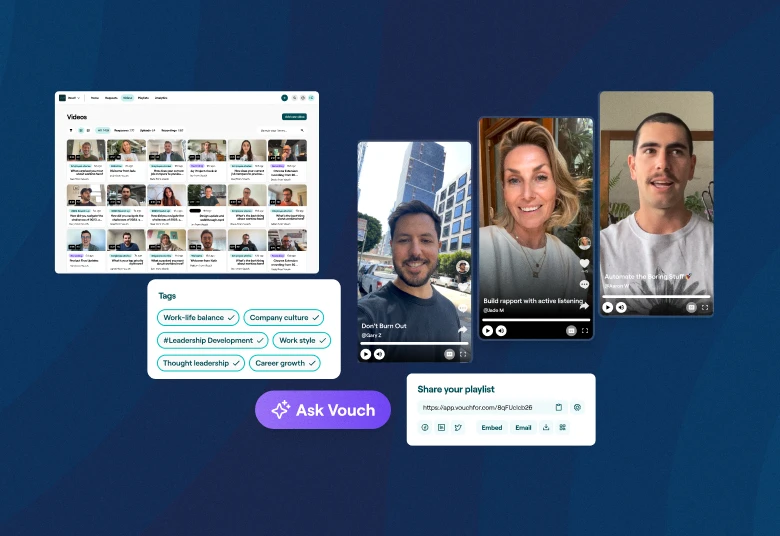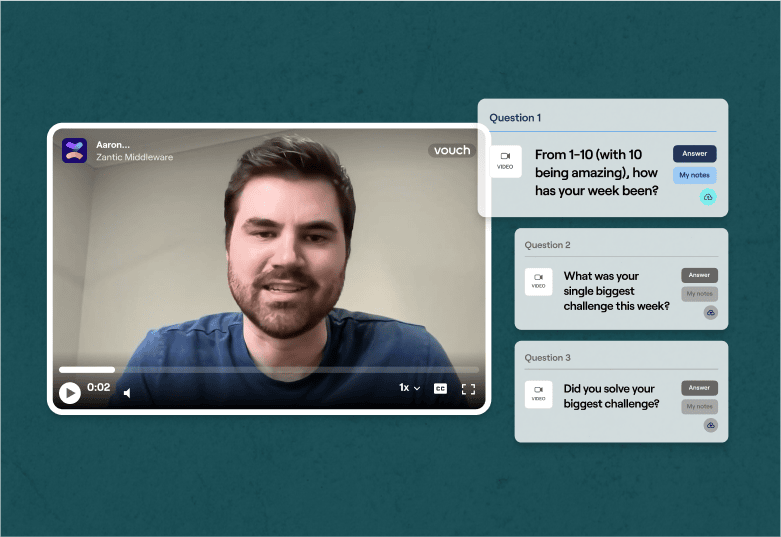Employee education in 2026 is truly a must for any company serious about business growth, employer branding and employee retention.
Whether you're offering your employees formal programs, online courses (like video training), professional development workshops, or other services, there's a clear business impact when you invest in people.
Employee education is vital to boosting employee morale, your team's skills & adaptability, reducing turnover, and keeping you competitive in your market.
Let's get started.
What Business Benefits Does Employee Education Provide?
The benefits of employee education are more than just filling knowledge gaps. Employee education promotes professional growth, career success, and business sustainability.
Let's break down these key benefits:
1. Enhanced Skill Development
According to one report by the World Economic Forum, 50% of all employees will need reskilling by 2026 due to evolving job roles.
Whether formal learning through college courses, informal learning via microlearning with tools like Vouch, or using resources like LinkedIn Learning, allowing your employees to expand their skills is vital to help your business stay competitive as technology and industries evolve.
A well-educated workforce in 2026 and beyond means better problem-solving, more innovation, and an increased ability to adapt to change with technology like AI quickly evolving.
2. Employee Retention and Reduced Turnover
A study from the Society for Human Resource Management (SHRM) found that companies with a positive employee experience have staff who are 68% less likely to consider leaving.
One of the most impactful ways to increase your employee experience is by helping your employees upskill. When employees feel their company is investing in them, they're more likely to stay and grow with the business.
Offering internal training like micro-learning, tuition waivers, tax-advantaged tuition assistance, and professional development opportunities can reduce employee turnover.
3. Increased Employee Engagement
Research from Gallup in 2025 indicated that organizations offering professional development and learning activities saw a 78% decrease in employee absenteeism, one of the critical indicators of employee engagement.
Employees who engage in continuous learning, including video-based education, sponsored credit courses or job-related training, are more likely to feel fulfilled and motivated. This results in higher employee feedback scores and enhanced job satisfaction.
4. Direct Business Impact
When employees gain new skills, whether through in-house development programs, non-credit courses, or advanced degree programs, they bring those new competencies directly into their day-to-day roles. This translates into measurable business growth, from increased productivity to better decision-making.
5. Tax Benefits for Employers
Another often overlooked benefit of employee education is the potential for tax implications.
In many cases around the world, businesses can claim or deduct educational expenses, like tuition assistance programs, making it a win-win for both the employee and employer.
The AI-enabled workspace for talent teams.
- Unified workspace for talent teams
- Accelerate hiring with AI tools
- Auto-generate polished hiring and employer brand content
- Easily repurpose assets across all channel
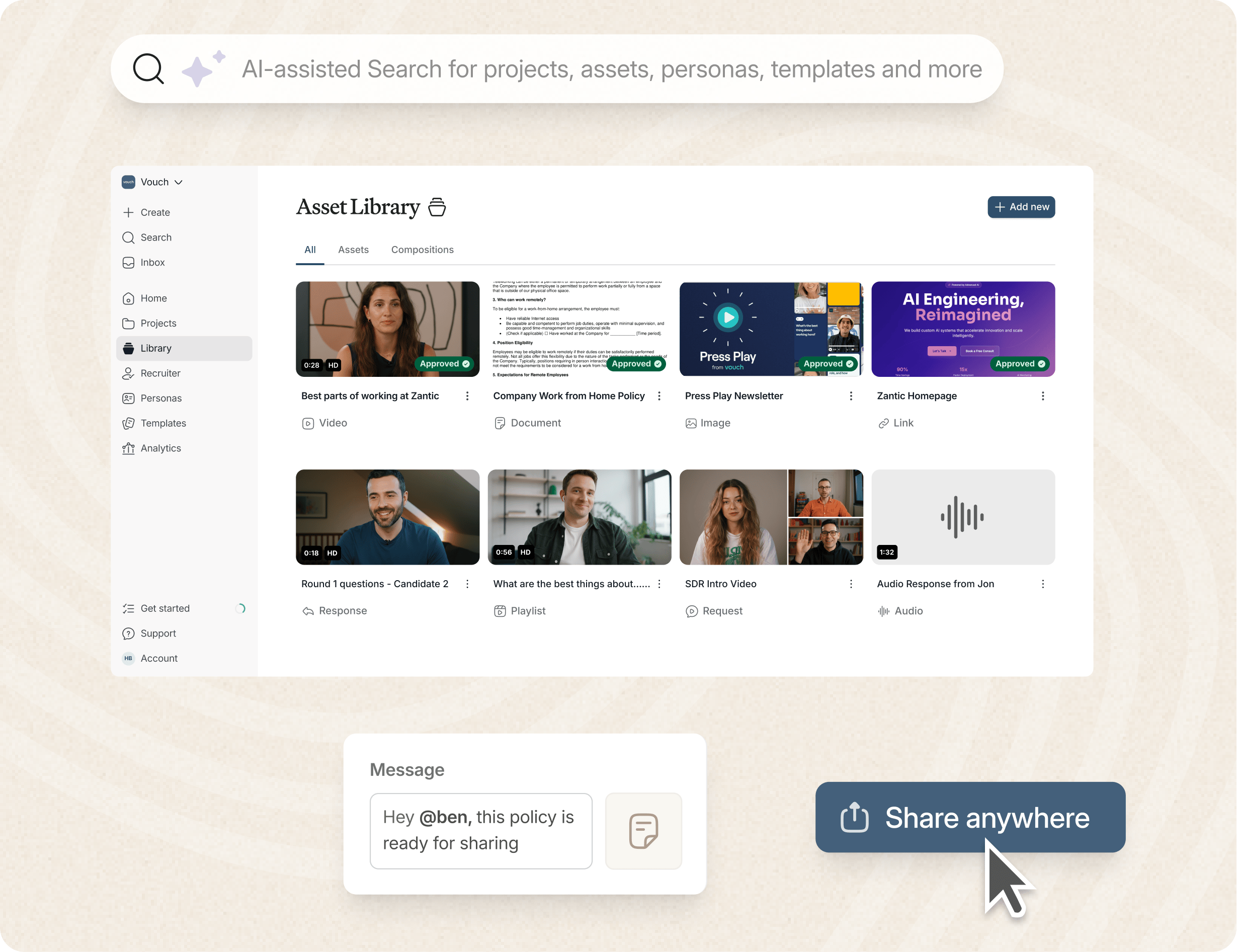
Types of Employee Education Programs
Not all educational opportunities are created equal. Here's a breakdown of the types of programs companies can offer:
1. Online Learning Programs
Asynchronous learning and the rise of microlearning through platforms like Vouch, LinkedIn, and others allow for flexibility in employee schedules. It's perfect for both full-time employees and part-time staff employees looking for continuous learning opportunities.
Microlearning is quickly becoming the future of employee education across all kinds of roles, from hands-on roles to customer service and sales.
2. Professional Development Workshops
Leadership development, compliance training, and other skill-based workshops are essential for junior employees and mid-level managers looking to improve their job functions. Development workshops can be either created in-house, or a team of training experts can be leveraged if needed - either way, these workshops are proven ways to educate your employees.
3. Certification Programs
For roles that require specific technical skills or compliance training, certifications can be a game-changer. Full-time A&P employees, for example, often benefit from these programs to stay updated in fast-changing industries.
4. Tuition Assistance Programs (TAP)
These programs provide financial assistance to cover tuition costs for full-time employees. Whether employees are pursuing a graduate degree or job-related courses, TAP can help alleviate the financial burden of your employees as they upskill.
5. Degree Programs
Some companies go a step further by offering tuition waivers for employees pursuing graduate courses or advanced degrees. This not only attracts top talent but also builds loyalty among regular employees.
Remember, investing in your people is investing in your business and your employer brand to attract the very best talent.
Key Data for 2026: Employee Education Statistics
To understand the real value of employee education, let's take a look at some hard data:
- Business Growth: A 2024 LinkedIn study revealed that companies investing in employee education saw a 24% increase in revenue per employee compared to those that didn't offer educational programs. Source.
- Employee Retention: According to Michigan Technological University, companies offering tuition aid had an average employee retention rate of 80%, compared to just 55% in companies without such programs. Source.
- Job Satisfaction: A survey by Gallup showed that employees participating in education benefits reported a 30% higher job satisfaction rate. Source.
- Professional Development: SHRM's 2024 report highlighted that 87% of employees say access to development programs is a key reason they stay with their employer. Source.
- Career Growth: The American Society for Training and Development found that employees who participated in ongoing training were 50% more likely to be promoted than those who didn't. Source.
FAQs
How does employee education improve productivity?
Employee education can lead to a significant productivity boost. A study by Harvard Business Review found that companies offering comprehensive training programs had 218% higher income per employee compared to those without formal training. Educated employees develop better skills, leading to more efficient workflows and enhanced productivity. Source: Harvard Business Review
What impact does employee education have on retention rates?
Investing in employee education significantly reduces turnover. According to LinkedIn's Workforce Learning Report, 94% of employees say they would stay at a company longer if it invested in their career development. Education creates a sense of loyalty and growth opportunities, leading to improved retention. Source: LinkedIn Learning Report
Does employee education enhance job satisfaction?
Yes, employee education is closely tied to job satisfaction. The Society for Human Resource Management (SHRM) found that employees who receive professional development opportunities are 15% more satisfied with their jobs. Education enhances confidence, skill sets, and opportunities for career progression, leading to happier employees. Source: SHRM
What is the return on investment (ROI) of employee education?
Companies often see a high ROI from investing in employee education. The Association for Talent Development (ATD) reports that companies that invest an average of $1,500 per employee annually on training see a 24% higher profit margin than those that spend less. This shows that well-trained employees contribute to financial success. Source: ATD
How does employee education influence innovation?
Employee education promotes innovation by providing individuals with the skills needed to think creatively and adopt new technologies. According to Deloitte, companies with strong learning cultures are 92% more likely to innovate. Continuous learning helps employees stay current and contribute to the evolution of the company. Source: Deloitte
Can employee education improve customer satisfaction?
Yes, companies with well-educated employees report better customer service outcomes. Forbes states that companies offering extensive employee training see a 16% increase in customer satisfaction. Employees with strong product knowledge and communication skills can more effectively meet customer needs. Source: Forbes
How does employee education support company culture?
Investing in employee education fosters a positive company culture. A Gallup report shows that companies with strong learning cultures experience 30% higher employee engagement. When employees feel supported and encouraged to learn, they are more likely to contribute positively to the company's mission and values. Source: Gallup
Summary
Employee education has become a critical strategy for business growth, employee retention, and strengthening your employer brand.
Furthermore, studies by global leaders like the World Economic Forum show that 50% of employees will need reskilling by 2026 and that employees in organizations with learning opportunities report 30% higher job satisfaction, according to data by Gallup.
Getting started doesn't need to be difficult, either. By leveraging tools like Vouch for microlearning or offering comprehensive education programs, you can start building a more skilled, loyal, and engaged workforce in little time.
Transform Your Employee Education Today with Vouch!
Loved by companies like Canva, Nike, Cisco, HubSpot, Amazon, and more, tools like Vouch make leveraging video in your business communication, employee training and recruitment remarkably easy.
Be sure to book a Vouch demo today and chat with a video content expert.
You might also like

Elevate Your Brand Today With Vouch
Discover how Vouch can accelerate talent acquisition while helping you stay on-brand.


